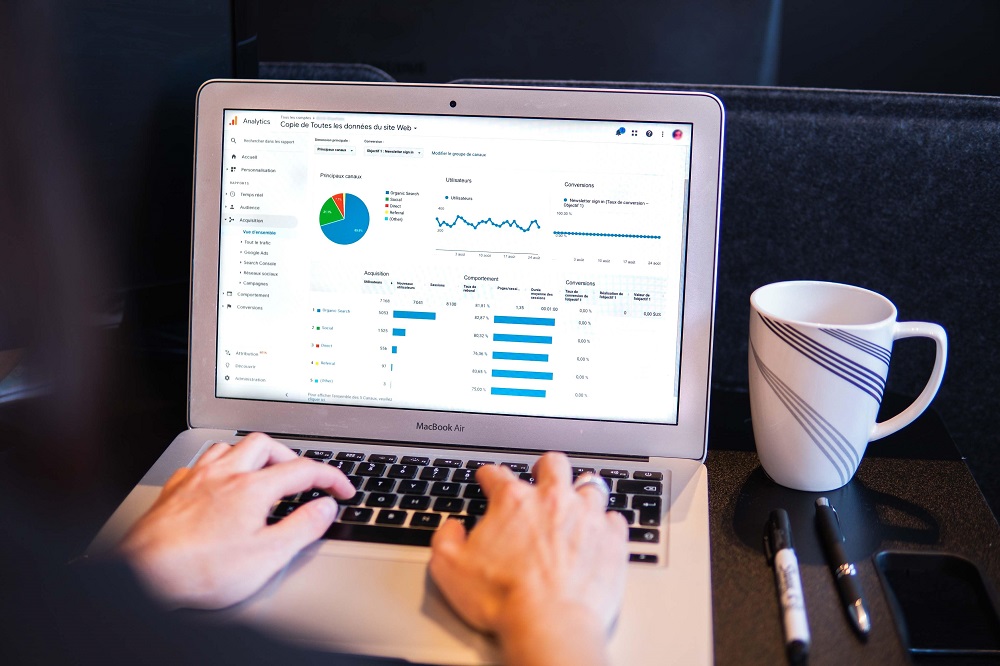Developing versatile data management systems and acquiring trustworthy business intelligence is vital to thriving in this era of intense competition. However, how a brand distinguishes between relevant and unnecessary data affects its potential to integrate data-driven strategies. Simultaneously, poor data quality, unauthorized record modification, deliberate report manipulation, and technological skill gaps hinder analytics operations across global enterprises. This post will list the top 5 data analytics companies transforming business by mitigating these risks.
Data Analytics Companies - Introduction
Data storage and computing hardware have become more capable due to the incremental innovation focused on efficient and scalable data processing. Consider how cloud platforms empower the corporate world through integrated automation features and virtualized collaborative environments. Therefore, modern organizations might train in-house teams to operate such tools.
Nevertheless, outsourcing to professional analysts helps reduce expenses, distribute IT risks, and invite outsider expertise. Accordingly, several companies have emerged to satisfy the established businesses’ data strategy and consulting requirements.
What are Data Analytics Companies?
A data analytics company leverages computer-aided statistical scenario modeling, testing, regression, and conflict management. It also assists clients in converting complex tabulated records into intuitive dashboards.
Likewise, a data analyst is a professional responsible for finding actionable insights from multiple datasets. So, related skills like mathematics, problem modeling, optimization, visualization, and business acumen are vital to thrive in this career. However, a need for modern learning opportunities to become a data analyst is evident among developing and developed countries.
Data analytics companies in this list seek to bridge that skill gap by becoming go-to service providers for database development and transforming business practices. They facilitate extensive pattern recognition, cloud integration, and automated reporting dashboards. After all, they select the best talent in the world to meet their clients’ analytics-related demands at a reasonable compensation.
Related: Data Analytics as a Service (DAaaS): A Brief Overview of the Next Data Evolution
The Impact of Data Analytics Companies on Industries
Analysts contribute to an organization’s decision-making and strategy-creation activities through relevant insight discovery. Therefore, managers understand a project’s strengths and feasibility concerns while reducing the risk of relying on obsolete or irrelevant datasets.
Approximately the world generates 2.5 quintillion bytes of data volume each day. Therefore, it is unsurprising that analytics consultants estimate the global market is worth more than 270 billion. Related data analytics solutions to business problems extend beyond the information technology industry.
For example, healthcare providers, real estate developers, agricultural businesses, educational institutes, and governments worldwide leverage analytics to optimize their growth strategies.
Meanwhile, more aspirants want to pursue a full-time career in data science, analytics, modernization, governance, and quality management. They seek exciting environments and advanced tech integrations to learn the best practices in the analytics sectors. More enterprises also want to increase their data analytics and automated reporting capabilities for competitive advantages in sales, marketing, finance, supply chain, and customer relationship management.
Read Also: Top Data Analytics Technologies Transforming Organizational Operations
The Role of Data Analytics in Modern Business
Conventional approaches to business development and intelligence gathering can adversely affect a corporation’s competitiveness. So, recognizing the importance and benefits of adequate data analysis technologies is essential. Consider the pros of embracing modern sample collection methods, data quality management (DQM), and report creation.
-
Brands get more comprehensive insights into why their strategies might fail when launching a new product and what their competitors might plan for the quarter.
-
Reporting performance improvements and discussing areas with potential productivity losses becomes easier.
-
Analytics tools also streamline data verification and collaboration activities. After all, most modern data analytics systems leverage cloud computing platforms.
-
Related business intelligence (BI) and data visualization services will increase the effectiveness of corporate communication. When humans interact through visual dashboards, they overcome the drawbacks of tabulation-based number-crunching methods.

Key Players in Data Analytics
Regional demand for insight extraction, regression, statistical modeling, and DQM varies across developed and developing countries. However, more organizations have embraced outsourcing strategies to distribute the data operations workload. So, determining who leads this industry in a market is challenging.
Nevertheless, independent investigators, consultants, and professional associations monitor data analytics and modernization trends. They can also categorize insight reporting agencies based on workforce, automation, business scale, turnover, global presence, and offered data analytics solutions.
Read Also: Importance of Data Analytics in the Healthcare Industry
Types of Data Analytics Companies Transforming Business
Basis 1 – Reporting Scope: Historical Review or Forecasting Capabilities
An analytics entrepreneur might provide all four services, namely descriptive, diagnostic, predictive, and prescriptive analytics. However, developing, maintaining, and commercializing these offerings will require considerable capital investment. Alternatively, some firms can specialize in historical performance analytics. So, they focus on descriptive and diagnostic analytics.
On the other hand, others can dedicate their resources to forecasting and risk management. Their products will deliver prescriptive and predictive analytics services for insight exploration and scenario-based impact assessment.
Basis 2 – Workflow Tools: Third-Party Solution APIs vs. Original In-House R&D
Today, several reputed brands integrate commercially available third-party platforms for efficient workflows. These analytics consultants can let the cloud-hosted platforms manage all the cybersecurity and automation tasks. Besides, they can customize workflows to leverage multiple programs through vendors’ application programming interfaces (APIs).
At the same time, pioneering universities and the top global enterprises invest in pure science, machine learning (ML), and generative artificial intelligence to innovate the core analytics practices. These organizations define the academic, technological, and legal foundation, enabling other companies to reimagine their data analytics services.
Basis 3 – Variety of Service Offerings: Analytics-only or All IT Operations
Data analytics companies that are transforming the business landscape can perform specific processing tasks like customer analytics services. While they can integrate customer relationship management (CRM) software, personalization models, and customer journey mapping, they will not support human resources or holistic financial risk modeling feature requests.
Does this situation mean clients must use a lot of capital for multiple data analytics solutions and strategies?
No. Established analytics businesses inevitably need to diversify their offerings throughout their lifecycle. Therefore, corporate stakeholders can get bid data, market research (MR) studies, climate risk reports, and customized service packages.
Basis 4 – Industry Focus: Targeting One Industry vs. Many Disciplines
Finally, you can differentiate between analytics firms based on target industries. For instance, a supply chain analytics brand might tailor analytics, BI, MR, DQM, and ML technologies for manufacturing or import-export enterprises.
Meanwhile, an HR analytics firm will target young businesses lacking adequate human resources and talent acquisition teams. A real estate analysis provider will help developers, engineers, urban planning authorities, and investors enjoy the advantages of data-driven property selection.
Some data analytics companies also cover four to eight sectors. So, they can utilize their marketing analytics solutions to assist green technology businesses, healthcare institutions, entertainment platforms, or Ed-Tech startups.
Top Data Analytics Companies
The promising future of data analytics, context identification, and visualized reporting has inspired many business leaders and investors. More than 300,000 firms in the United States serve data analytics tools, strategies, and software licenses. Independent data analysts who are solopreneurs and university-affiliated centers of excellence (COEs) will increase this figure.
Globally, novel analytics and business intelligence startups assist micro, small, and medium enterprises (MSMEs) in competing with the global brands in their respective sectors. However, investors and growth-focused corporations want to list and compare the top data analytics companies. They want an appropriate insight extraction partner for informed decision-making and robust reporting. As such, the following organizations deserve their consideration.
1| SG Analytics
Since 2007, SG Analytics has served the clients’ data processing, reporting, and strategy requirements. It also leverages automation technologies to streamline workflows and accelerate report delivery. SG Analytics provides diverse insight exploration support to help businesses across healthcare, media, financial services, insurance, and educational technology industries.
As the world wants more responsible corporate development projects, professionals at SG Analytics empower the stakeholders with sustainability compliance and carbon emissions data. Environmental, social, and governance (ESG) and generative artificial intelligence are some of its future-oriented offerings alongside cloud-based data modernization.
Read Also: Trends in Big Data Analytics: Forecast for 2023
2| Tiger Analytics
TigerML, DataSphere, and Tiger IT Hub are some of this company’s solutions, assisting organizations in insight discovery and report publishing. Moreover, it offers customer experience consulting and data consulting guidance to manufacturing, life sciences, transportation, and telecom brands.
Tiger Analytics has customized data science and computer vision tools, enabling more than a hundred client organizations to benefit from evolving analytics methods. This enterprise also contributes to the budding data scientists and engineers’ growth through the Tiger Academy.
3| Mu Sigma
Mu Sigma focuses on corporate data engineering and decision-making. Therefore, its analytics offerings fulfill the requirements of retail, travel, oil, banking, and consumer packaged goods industries.
On the other hand, Mu Labs facilitates commercialization for academic and private research projects. It employs computer vision and artificial intelligence (AI) in algorithmic decision-making practices. Mu Sigma also provides two platforms: the "enquiry engine" muAoPS and enablers of confidence (EoC) for decision scientists.
4| SAP SE
SAP specializes in enterprise resource planning (ERP) by prioritizing data analytics applications that solve clients’ human resources, sales, marketing, finance, and production management challenges. This brand is well-recognized among the top data analytics companies for transforming supply chain analysis.
Its analysts and engineers support automobile, retail, packaged goods, energy, construction, travel, and defense industries. SAP’s products offer assistance for warehouse robotics, data governance, multilingual AI, and scheduling. Besides, clients can explore their data analytics and ERP solutions through the SAP store.
Read Also: Data Analytics in Media & Entertainment Industry: 2023 Trends
5| Tableau
Tableau has empowered data professionals to craft engaging visuals from diverse dataset formats. It integrates with Salesforce 360 to redefine customer relationship management (CRM) for modern businesses.
It solves clients’ problems across sales, IT, service delivery, customer engagement, and experience management. Furthermore, Tableau optimizes its offerings for retail, healthcare, communications, education, non-profit, and public administration organizations.
Services Offered by Data Analytics Companies
The data analytics service companies can offer all their technologies as cloud-powered branded platforms. Otherwise, they conduct face-to-face sessions to understand clients’ needs and develop novel software programs. The firms can also streamline clients’ ease of use through modular or API-based delivery strategies.
The following facilities are available at several data science, data engineering, analytics, and digital transformation providers.
1| Data Lake Implementation
The era of big data and mixed dataset structures promises more extensive sample sizes that help increase the reliability of statistical models. However, finite data storage resources or conventional sorting algorithms might limit the potential of big data analytics. So, analysts rely on in-house or external data warehousing and data lake implementation. These technologies provide flexible cloud-based BI and media storage, integrating automation and remote collaboration features.
2| Data Visualization and Reporting
Data visualization embraces geometric shapes, color coding, animation, and video to communicate trends based on storytelling tactics. Besides, it eliminates the need for number-crunching, scanning, and skimming through multi-tabulated reports. Visual reports can quickly highlight unusual changes in performance metrics. Collaborating with third parties also becomes more manageable due to cloud-hosted dashboards.
3| Predictive Analytics
Predictive analytics in enterprise data solutions improves scenarios or feasibility studies. A scenario represents a future event corresponding to a favorable or unfavorable competitive environment. It helps explore the potential outcomes of a business decision.
At the same time, a project feasibility report describes an initiative’s opportunities and risks. Today, predictive analytics is crucial for preparing these documents for risk assessment across investment research and business mergers.

4| Data Strategy and Consulting
Each data source has a mixture of authoritative and speculative content. Therefore, managers must identify relevant data sources, verify the acquired intelligence, and determine data storage approaches. Later, they will require a capable analytics, visualization, and collaboration software environment to extract actionable insights for business development.
A data strategy offers a systematic arrangement to maximize efficiency and reduce conflicts. As a result, top analytics companies deliver data strategy consulting.
5| Sentiment Analysis
Emotions influence consumers’ purchase choices, investors’ faith in brands, and public relations. Nevertheless, manual inspection of stakeholder feedback is time-consuming, while automating unstructured response analysis demands advanced computing.
Thankfully, enterprises can leverage independent sentiment analysis services to augment their customer review sorting and summarization tasks. These facilities categorize descriptive or unstructured feedback entries into neutral, positive, and negative groups. Furthermore, they can explore context and intent to reveal vital marketing insights.
6| Marketing Analytics
Alongside sentiment identification, a marketing and public relations (PR) professional must examine how consumers discover the company’s products. Marketers must also learn what encourages clients to pay for the products or services.
However, they witness the rise of several social networking, entertainment, and discussion forum platforms. It is daunting to capture relevant data from those sources for an effective promotional strategy. Therefore, they benefit from marketing analytics supporting multi-channel report consolidation.
7| Customer Analytics
Customer satisfaction (CSAT) rate is one of the essential metrics in estimating the value clients get from a product or service. Likewise, a responsible brand must track cart abandonment rate, engagement duration, complaint submission frequency, and successful repairs data. Customer analytics companies empower corporate leaders to calculate these metrics. Doing so lets the brands find areas of improvement throughout the customer journey maps and sales funnels.
8| Operations
If a company’s capital goes to inefficient operations, it becomes unattractive to investors. Moreover, employees might be more likely to quit sooner due to inevitable productivity loss and related workplace stresses. Still, managers want indisputable evidence to increase the budget for maintenance or replace available equipment at a manufacturing unit. Data analytics companies can aid them in finding workflow components, workers, or external risks that adversely impact business operations.
Choosing the Right Data Analytics Company for Your Business
Statistical sciences, artificial intelligence, cloud security, and new technologies unlock unique opportunities to make data analytics more capable. Accordingly, corporations recognize the boom in this industry while being wary of hiring potentially fraudulent analytics providers.
Given the significance of data analytics companies in transforming business, enterprises must vet the data providers and IT partners using the following steps.
Step 1| Identifying Your Business Needs
Focus on data sources and formats closely related to the organization’s mission statement and documentation guidelines. The clients must provision excess computing resources if an analyst follows a broader data-gathering methodology. However, collaborating with data strategists to avoid irrelevant data collection can assist companies in reducing processing workload. For example, determine whether to prioritize reporting industry trends data or in-house performance insights.
Step 2| Evaluating Expertise and Experience
Does the data analytics firm hire the best talent in the market? What are the credentials of the company's analysts, data scientists, and engineers? Business owners must investigate the available consultants’ field experience and skill level. Otherwise, they will waste their IT budget on incompetent data analysts relying on outdated sampling and visualization approaches.
Step 3| Considering Budget and Cost-effectiveness
If companies want to automate all aspects of customer behavior studies, product testing, carbon risk reporting, or human resource management, they must spend more. However, regional brands serving a finite or homogenous customer base can optimize their data operations budget by seeking standard analytics solutions. Global companies will benefit more from sentiment analysis, AI integration, and multilingual data processing.
Read Also: 71% BFSI Firms Use Big Data Analytics to Gain Competitive Advantage
Step 4| Assessing Data Security and Privacy Compliance
Some data analytics companies employ end-to-end encryption (E2EE) for data during transit. Others utilize advanced encryption for data throughout the processing lifecycle. So, clients’ intelligence assets stay secure across storage, analytics, visualization, and collaboration. An ideal data analytics provider will also implement a resilient authorization and antimalware policy for governance.
The Challenges and Limitations of Data Analytics Companies
Every industry suffers from macroeconomic risks and unreliable market share dynamics. Data analytics has distinct problems affecting its adoption among specific countries and sectors. For instance, privacy regulations assist in reducing data leaks and misuse of customer profiling. However, legal ambiguities threaten the future of marketing and customer analytics.
Similarly, scalable analytics ecosystems rely on robust hardware. Today, available materials have attracted several new stakeholders. The supply is steady, but the demand has been skyrocketing for decades. This situation makes silicon-based production more expensive. Besides, blockchain projects and “always online” smart gadgets suggest that an already competitive electronics market will be more aggressive.
On top of that, data analytics service companies must overcome the following limitations to survive and thrive.
1| Dealing with Data Quality and Integrity Issues
Fake news, manipulated experiments, unauthorized access, and short-sighted data strategies hurt data quality. Later, poor data quality causes insight extraction issues. Even if analysts apply sound mathematical techniques, outdated or irrelevant datasets can generate misleading trend reports.
When the reliability of analytics, data visualization, and reporting declines, corporations reduce their budget for insight exploration. Stakeholders also relapse into empirical or intuitive decision-making since they lose faith in data-driven strategy creation.
The entire industry must standardize analytics technologies and reports. At the same time, acquired data must undergo zero-tolerance validation and appropriate data cleansing phases. Alternatively, data analytics companies and clients can employ machine learning (ML) to optimize databases or estimate missing values.
2| Addressing Ethical Concerns in Data Collection and Usage
Consider these issues:
-
Is it acceptable if a marketing analytics consultant exploits technology to profile customers with impulsive spending habits?
-
Can businesses leverage personalization strategies to “hook” children to advertisements?
-
If the customers live in one country, will it be ethical to share their health or family-related records with another company in a distant economic area?
-
Also, can a hospital preserve and communicate patients’ electronic health records (EHRs) to a rare disease and epidemic research facility?
-
Who is responsible if customer, employee, investor, and whistleblower data becomes available on the dark web for sale?
-
Likewise, what laws can govern analytics-related disputes involving stakeholders in multiple geopolitical areas?
These concerns become more severe if they include artificial intelligence tools and defense departments. Therefore, ethical limitations in data analytics and cloud-powered cross-border computing affect the global adoption of modern insight reporting solutions.
3| Managing Data Governance and Compliance
Ransomware attackers often target corporate entities to demand compensation for regaining access to business intelligence assets. Meanwhile, identity theft is a cybercrime that leverages forged documentation and a person’s public or leaked data to conduct problematic activities. Finally, employees at an organization might share the brand’s trade secrets and research literature with rival companies. These threats interfere with analysts’ work.
After all, Data analysts handle many insight exploration assignments like reporting the performance of clinical drugs or estimating risk exposure of proposed business acquisition deals. Besides, they must acquire open-source and proprietary tools from online platforms.
However, analysts or their coworkers might install harmful applications, use unencrypted communication channels, or connect to the web without virtual private networks (VPNs).
Doing so will enable cybercriminals to infect their systems with malware or steal the company’s data on analysts’ workstations. They can capture personal details, location, or network-shared files. Therefore, data analytics companies must list and patch their IT vulnerabilities before a governance compliance crisis arises.

The Future of Data Analytics Companies
Despite the data quality management hurdles, the global data analytics market has a promising future. Investors, consumers, governments, and corporations believe in modern problem modeling and insight extraction strategies.
Consider the rise of real-world evidence (RWE) in healthcare outcomes reporting. It facilitates more reliable recovery rate estimation. So, the supervising doctors and nursing professionals can optimize their intervention approaches. Similarly, edtech and fintech industries depend on contextual insights and predictive intelligence systems to assist their target user base.
As more stakeholders pursue sustainable living, enterprises need data-backed strategies toward ESG and carbon compliance. Furthermore, urban local bodies across the globe must evaluate, finance, and redevelop infrastructure through holistic analytical models.
These trends prove that data analytics is vital for enhancing living standards, modernizing industries, and repairing our relationship with the natural ecosystem.
SG Analytics, recognized by the Financial Times as one of APAC’s fastest-growing firms, is a prominent insights and analytics company specializing in data-centric research and contextual analytics. Operating globally across the US, UK, Poland, Switzerland, and India, we expertly guide data from inception to transform it into invaluable insights using our knowledge-driven ecosystem, results-focused solutions, and advanced technology platform. Our distinguished clientele, including Fortune 500 giants, attests to our mastery of harnessing data with purpose and merging content and context to overcome business challenges. With our Brand Promise of “Life’s Possible,” we consistently deliver enduring value, ensuring the utmost client delight.
A leading enterprise in advanced analytics and market research, SG Analytics emphasizes integrating front-line technologies and strategies to deliver holistic enterprise solutions to help you surpass competitors. Contact us today for data-driven business transformation.
About SG Analytics
SG Analytics is an industry-leading global insights and analytics firm providing data-centric research and contextual analytics services to its clients, including Fortune 500 companies, across BFSI, Technology, Media and entertainment, and Healthcare sectors. Established in 2007, SG Analytics is a Great Place to Work® (GPTW) certified company and has a team of over 1100 employees and has presence across the U.S.A, the U.K., Switzerland, Canada, and India.
Apart from being recognized by reputed firms such as Analytics India Magazine, Everest Group, and ISG, SG Analytics has been recently awarded as the top ESG consultancy of the year 2022 and Idea Awards 2023 by Entrepreneur India in the “Best Use of Data” category.
FAQs About Data Analytics Companies
1| What Services Do Data Analytics Companies Offer?
Answer: Data analytics companies deliver insight discovery, sentiment analysis, market research, investment strategies, and industry forecasting assistance. They can also provide sector-specific reporting and data quality assurance. Some analytics firms develop self-service platforms and APIs to make their offerings more user-friendly.
2| How Do I Select the Right Data Analytics Company for My Business?
Answer: Study how the potential data partners have delivered results to help their previous clients improve performance. Also, companies must determine whether their service offerings and expected compensation suit the approved budget. Clarify your short-term and long-term objectives for data operations. Compare the data analytics service companies based on reputation, project portfolio, and industry relevance.
3| What Are the Typical Costs Involved in Hiring a Data Analytics Company?
Answer: Data storage costs can increase due to the data volume that a global brand must manage. However, cloud-powered flexible storage systems help reduce those expenses. Additionally, platforms, APIs, and custom report formatting can result in remarkable billing liabilities. Finally, hiring a data analytics company might involve licensing, research, and cybersecurity integration fees.
4| Can Data Analytics Companies Help Improve Customer Satisfaction?
Answer: Yes. Customer and marketing analytics companies directly provide insights into relationship management, engagement metrics, and experience planning. Meanwhile, product testing, telemetry reports, and market research reveal innovative ideas. If the client organization revises its customer experience and product development based on those insights, it can enhance CSAT metrics.
5|How Can Data Analytics Companies Safeguard Sensitive Data?
Answer: All data mining, aggregation, and analytics businesses must comply with privacy directives. As a result, they protect the company’s business intelligence and customer data using encryption, firewalls, VPNs, antimalware programs, and cutting-edge governance measures. They also upgrade their IT infrastructure with modern hardware and software updates. Moreover, analytics providers train the employees on ethical data usage and secure business correspondence.









